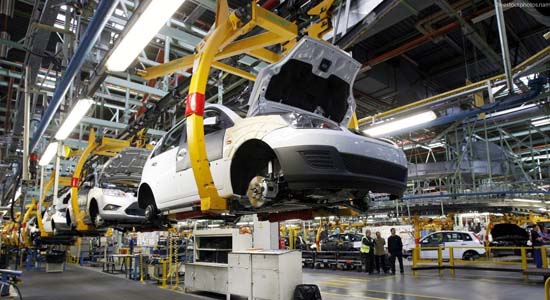Four years after its introduction, stakeholders have criticised the National Automotive Industry Development Plan (NAIDP) of the Federal Government.
Speaking in Lagos at a forum organised by the Nigeria Auto Journalists Association (NAJA), Dr Oscar Odiboh, a Senior Lecturer, Covenant University (CU), Ota, Ogun State, lamented the state of the industry, saying that it may collapse unless the government and stakeholders in the sector take urgent steps to address the challenges.
According to him, the economic downturn, uncertainties and government inactions have crippled the growth of the industry, despite concerted effort to turn the country to a vehicle-manufacturing nation.
Odiboh, who spoke on ‘Implementation of Nigeria’s auto policy: The way forward’, insisted that industry is divided and may not thrive until the stakeholders collaborate.
He observed that almost mid-term into the 10-year plan, most of the assembly plants lack international standard to compete globally, and could hardly be called assembly plants.
He said: “What we have at the moment are not real assembly plants. They are glorified joineries. An average 65 per cent of our assembly operations are manual, while 70 per cent of employees are casual.”
The National Automotive Design and Development Council (NADDC) and the Federal Government agency saddled with implementing the auto policy have repeatedly claimed that there are over 50 auto assembly plants, to the success of the policy.
Odiboh, who noted that players in the sector were frustrated through importation rules, added that more than 60 per cent of tools in the sector are manual.
Calling for budget cars, Odiboh stressed that the sector’s inability to offer affordable vehicles for mass market would keep used market growing to the detriment of the sector.
He said lack of patronage threatens the survival of the sector as brand new vehicles remained unaffordable for an average middle class citizen.
Odiboh called on the Federal Government to provide a finance that would enable acquire brand new vehicles, noting that projected objectives might remain elusive unless there is market for brand new cars.
He said poor power supply, bad roads lack of processed raw materials, lack of long-term financial investment and others were bane of the industry.
Similarly, corruption, deceptive data from the stakeholder, profit diversion, mutual suspicion, porous borders as well as poor positioning could eventually run down the policy, Odiboh said.



















